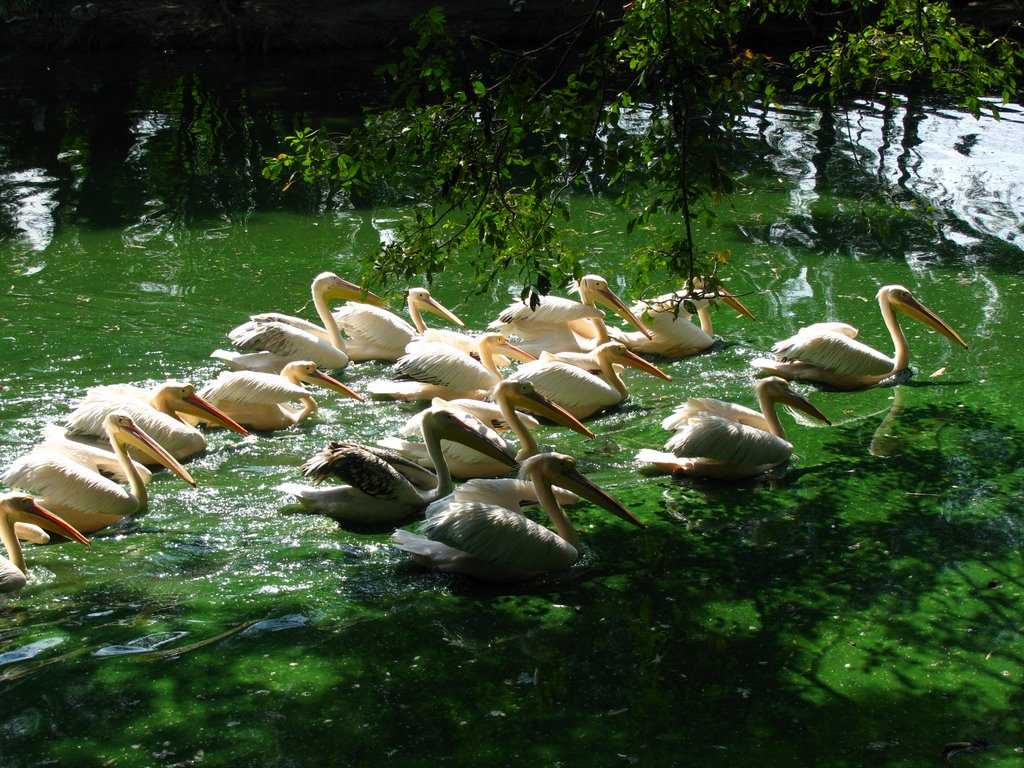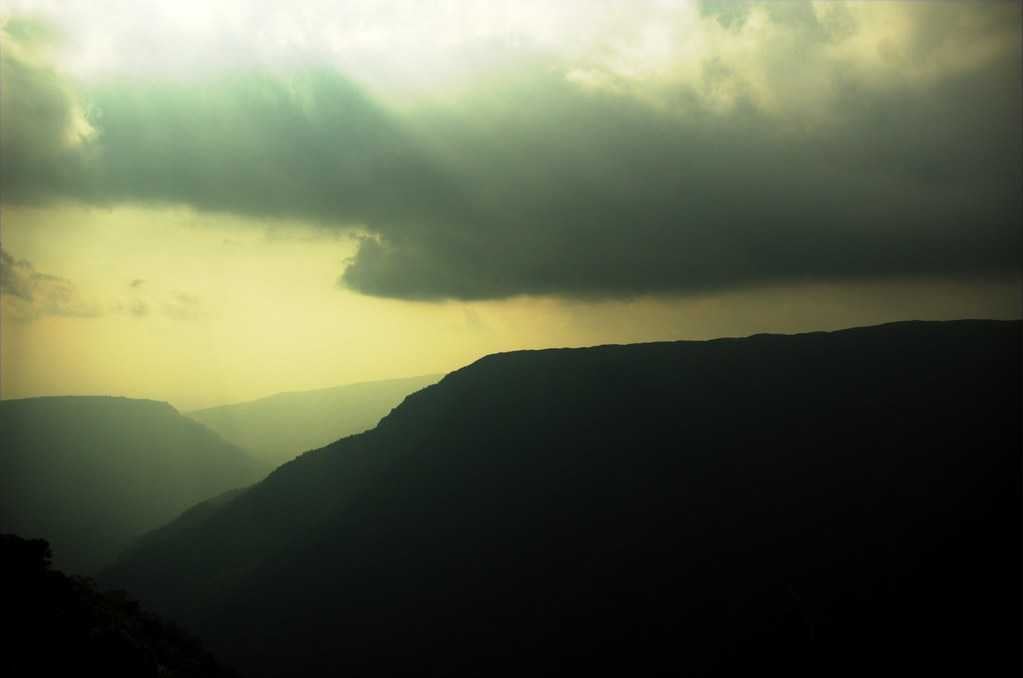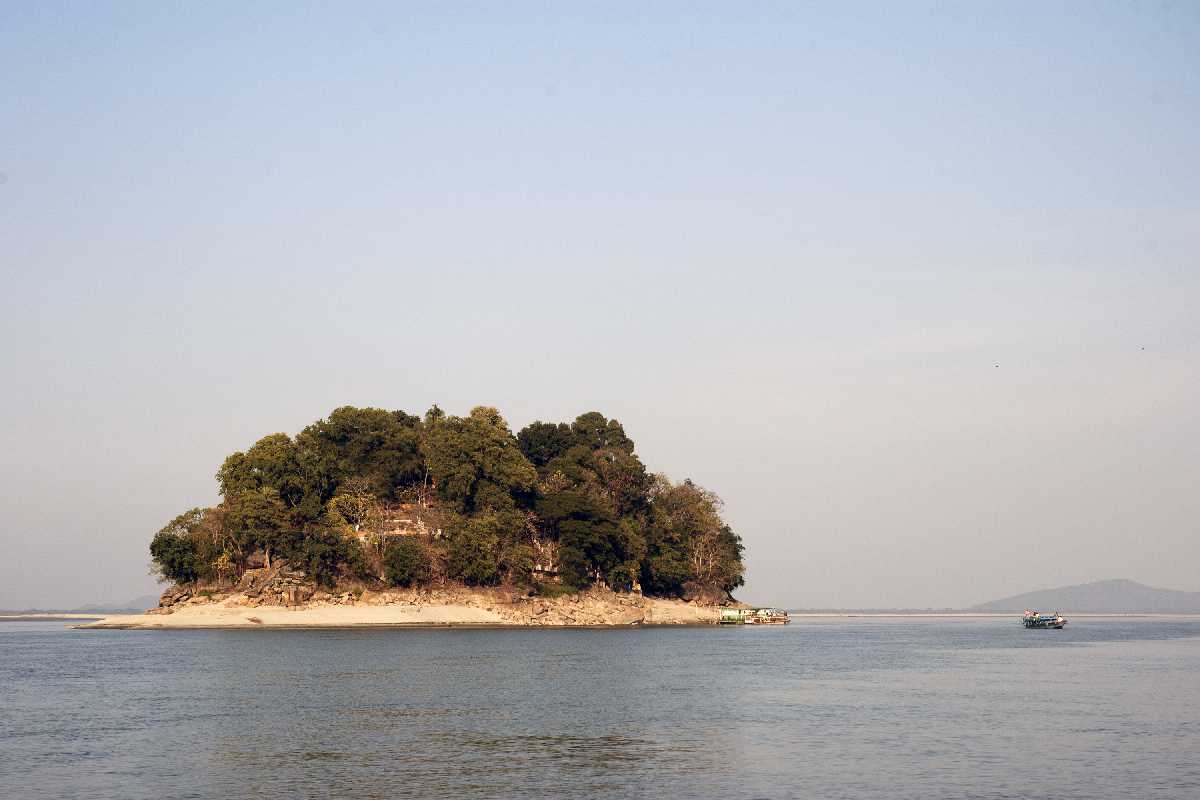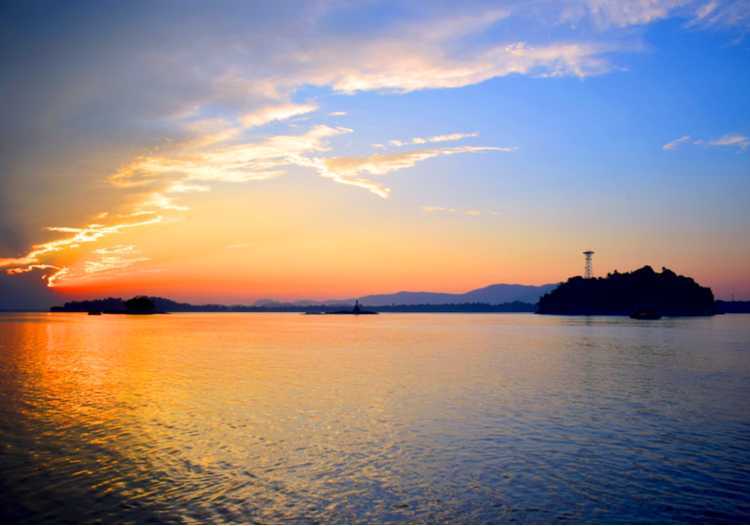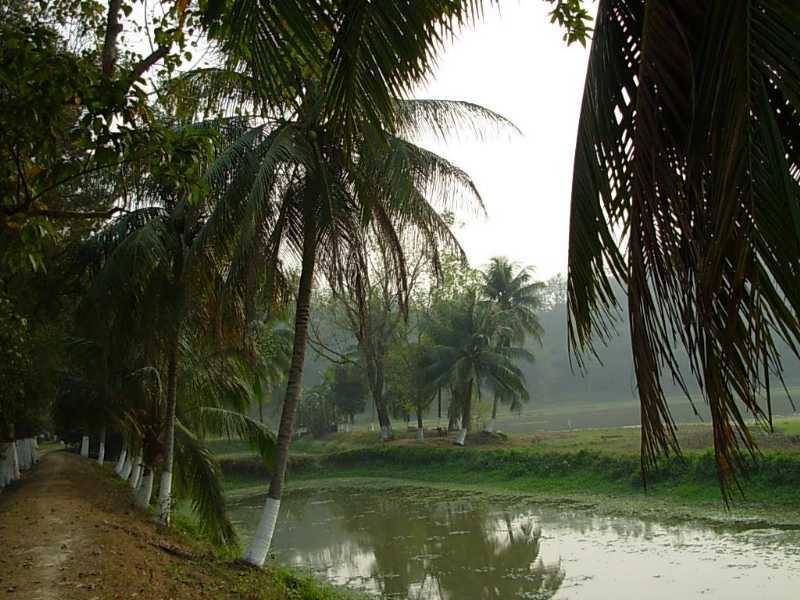POBITORA WILDLIFE SANCTUARY
Are you tired of the mundane city life? Do you crave for some adventure and wildlife experience? Well, look no further because we have got just the place for you - Pobitora Wildlife Sanctuary!
Located in the Indian state of Assam, this sanctuary is home to one-horned rhinos, elephants, tigers, leopards, wild boars and a variety of bird species. It's like a mini African safari right here in India!
But wait, there's more. The best part about Pobitora Wildlife Sanctuary is that it's not as crowded as other popular wildlife destinations like Jim Corbett or Bandhavgarh. So, you can enjoy your safari without worrying about other tourists photobombing your pictures with animals.
And if that's not exciting enough, you can also try out some traditional Assamese cuisine at the nearby villages. Trust us, once you taste their delicious fish curry and rice, you'll forget all about your city food cravings.
But hey, don't take our word for it. Plan a trip to Pobitora Wildlife Sanctuary and see for yourself why it's worth all the hype. And don't forget to bring your camera along because we guarantee that you'll be taking some Instagram-worthy shots!
Table of Contents
- Introduction
- History and Culture of Pobitora Wildlife Sanctuary
- How to Reach and getting around Pobitora Wildlife Sanctuary
- Weather of Pobitora Wildlife Sanctuary
- Places to Visit in Pobitora Wildlife Sanctuary
- Food Options and Local Cuisine of Pobitora Wildlife Sanctuary
- Best areas for Accommodation in Pobitora Wildlife Sanctuary
- Shopping in Pobitora Wildlife Sanctuary
- Nightlife in Pobitora Wildlife Sanctuary
- Festivals and Events in Pobitora Wildlife Sanctuary
- Tips for Travelers travelling to Pobitora Wildlife Sanctuary
- FAQs
History and Culture of Pobitora Wildlife Sanctuary
Pobitora Wildlife Sanctuary is located in the Morigaon district of Assam, India. This sanctuary is home to the famous Indian one-horned rhinoceros. It covers an area of 38.8 square kilometers and was declared a wildlife sanctuary in 1987.
Legend has it that Pobitora got its name from a lady named Pobita, who lived in the nearby village. She was known for her beauty and charm, which attracted many suitors. However, she refused all of them and stayed single. One day, she disappeared mysteriously, and people believe that she turned into a rhinoceros.
The sanctuary has a rich cultural heritage as well. Many festivals are celebrated here every year, such as Magh Bihu and Bohag Bihu. These festivals are celebrated with great pomp and show by the locals who reside around the sanctuary.
The park is also home to various other animals like leopards, wild boars, Asiatic water buffalo, and migratory birds like storks and pelicans. Visitors can take jeep safaris to explore the sanctuary's flora and fauna.
A unique feature of Pobitora Wildlife Sanctuary is its elephant rides. Visitors can ride on elephants to get a closer look at the rhinos grazing in the grasslands.
In conclusion, Pobitora Wildlife Sanctuary is not just a place for wildlife enthusiasts but also for those who want to witness Assam's rich culture and heritage while enjoying some good old-fashioned fun!
How to Reach and getting around Pobitora Wildlife Sanctuary
Pobitora Wildlife Sanctuary is a famous wildlife destination in Assam, India. It is home to the Indian one-horned rhinoceros and various other species of flora and fauna. To reach Pobitora, you can explore different modes of transportation that suit your convenience.
By Air: The nearest airport to Pobitora Wildlife Sanctuary is Guwahati Airport, which is about 75 km away. From there, you can hire a taxi or take a bus to reach Pobitora.
By Train: The nearest railway station to Pobitora is Guwahati Railway Station, which is located about 50 km away. From there, you can hire a taxi or take a bus to reach the sanctuary.
By Road: Pobitora Wildlife Sanctuary is well-connected by road with major cities like Guwahati, Shillong, and Kaziranga National Park. You can take a private taxi or bus from any of these places to reach Pobitora.
By Bus: Assam State Transport Corporation (ASTC) runs regular buses from Guwahati ISBT to Pobitora Wildlife Sanctuary. The journey takes around 2-3 hours depending on the traffic.
Self-Drive: If you prefer self-drive, you can rent a car in Guwahati and drive your way to Pobitora. The road conditions are good and offer beautiful views of the surrounding landscape.
No matter what mode of transportation you choose, reaching Pobitora Wildlife Sanctuary will be an exciting adventure for wildlife enthusiasts and nature lovers alike!
Weather of Pobitora Wildlife Sanctuary












 Extreme Winters
Extreme Winters Mild Winters
Mild Winters Hot + Dry
Hot + Dry Hot + Humid
Hot + Humid Rainy
Rainy Cool and Pleasant
Cool and PleasantPobitora Wildlife Sanctuary, located in the Indian state of Assam, is home to the famous one-horned rhinoceros. The weather at Pobitora Wildlife Sanctuary is typically classified as subtropical with hot summers and cool winters. The rainy season lasts from June to September, and the sanctuary receives a significant amount of rainfall during this time. The winter season starts from November to February, with temperatures dropping to as low as 10°C.
The best time to visit Pobitora Wildlife Sanctuary is between November and April when the weather is pleasant and dry. During this time, the temperature ranges from 15°C to 25°C, making it an ideal time for wildlife viewing and exploring the sanctuary's natural beauty. Visitors can spot rhinos grazing on grasslands or taking a dip in the water bodies.
The summer season starts from March to May with temperatures rising above 30°C, making it too hot for outdoor activities. However, visitors can still explore the sanctuary's flora and fauna by taking early morning or late afternoon safaris.
In conclusion, if you are planning a visit to Pobitora Wildlife Sanctuary, the best time to visit is between November and April when the weather is pleasant and dry. With moderate temperatures and clear skies, visitors can enjoy wildlife viewing and exploring the sanctuary's natural beauty without any hassles.
Places to Visit in Pobitora Wildlife Sanctuary
Rhino View Point The Rhino View Point is the most popular spot in Pobitora Wildlife Sanctuary. It is located on a hilltop, and visitors can have an unobstructed view of the rhinos grazing on the grasslands below. This is a perfect spot for photography enthusiasts to capture amazing pictures of these gentle giants in their natural habitat.
Kaliabor Village Kaliabor Village is located near Pobitora Wildlife Sanctuary and is famous for its traditional Assamese handicrafts, especially bamboo products. Visitors can witness the artisans working on their craft and even take home some souvenirs.
Hargila Bird Watching Tower The Hargila Bird Watching Tower is a recent addition to Pobitora Wildlife Sanctuary. It was built to help visitors observe the critically endangered Greater Adjutant Stork, also known as Hargila, in its natural habitat. The tower provides an excellent vantage point to watch these majestic birds fly and feed.
Trekking Trail The trekking trail at Pobitora Wildlife Sanctuary takes visitors through dense forests and grasslands where they can spot various animals such as wild boars, deer, and monkeys. The trail also provides an opportunity to explore the beauty of nature up close.
Jeep Safari The Jeep Safari at Pobitora Wildlife Sanctuary takes visitors on a thrilling ride through the grasslands where they can observe rhinos, wild buffaloes, and other wildlife from a safe distance. The safari lasts for about two hours, and visitors are accompanied by trained guides who provide interesting insights into the sanctuary's flora and fauna.
Nature Interpretation Centre The Nature Interpretation Centre at Pobitora Wildlife Sanctuary provides information about the sanctuary's history, wildlife, flora, and fauna through exhibits and interactive displays. It is an excellent resource for visitors who want to learn more about this beautiful sanctuary.
Tribal Village Tour Pobitora Wildlife Sanctuary is surrounded by several tribal villages that offer visitors a glimpse into their unique culture and way of life. Visitors can interact with locals, witness traditional dances and music performances while learning about the village's customs.
Picnic Spot The picnic spot at Pobitora Wildlife Sanctuary offers visitors a serene environment to relax amidst nature's beauty while enjoying delicious local cuisine with family or friends.
Elephant Safari Elephant Safaris are also available at Pobitora Wildlife Sanctuary for those who want to get even closer to nature while observing rhinos grazing in their natural habitat from atop an elephant's back.
10.Garbhanga Reserve Forest Garbhanga Reserve Forest is situated near Pobitora Wildlife Sanctuary where tourists can have an opportunity to explore dense forests with sighting opportunities of hoolock gibbons-the only ape species found in India along with other animals like elephants etc.
Overall, visiting these ten spots will give visitors a complete experience of exploring one of India's best wildlife sanctuaries- Pobitora Wildlife Sanctuary- which not only provides thrilling experiences but also educates people about conservation efforts being taken towards preserving these endangered species' habitats for future generations to come!
Relaxing Retreats
Nearby Forests
Food Options and Local Cuisine of Pobitora Wildlife Sanctuary
Best areas for accommodation in Pobitora Wildlife Sanctuary
Pobitora Wildlife Sanctuary is a popular tourist destination in Assam, India. The sanctuary is home to the Indian one-horned rhinoceros and offers a unique experience for wildlife enthusiasts. When it comes to accommodation, there are several options available within the sanctuary.
The best areas for accommodation in Pobitora Wildlife Sanctuary are:
Morigaon: This is a small town located near the sanctuary entrance and has several guesthouses and resorts.
Mayong: Mayong is a village located near the sanctuary and offers homestays and guesthouses.
Guwahati: Guwahati is a major city located about 50 km from the sanctuary and has several hotels and resorts.
Here are three properties for accommodation in Pobitora Wildlife Sanctuary:
Infinity Resorts Pobitora (Luxury): This resort is located near the entrance of the sanctuary and offers luxurious cottages with modern amenities like air conditioning, Wi-Fi, and flat-screen TVs. The resort also has an outdoor pool, spa, restaurant, and bar.
Parijat Tourist Lodge (Budget): This lodge is located in Morigaon town near the sanctuary entrance and offers basic rooms with attached bathrooms. The lodge also has a restaurant that serves local cuisine.
Brahmaputra Jungle Resort (Hostel): This hostel is located in Mayong village near the sanctuary and offers dormitory-style rooms with shared bathrooms. The hostel also has a common area where guests can relax and socialize.
Overall, there are several options available for accommodation in Pobitora Wildlife Sanctuary that cater to different budgets and preferences. Visitors can choose from luxury resorts to budget guesthouses or even opt for homestays or hostels to get a closer experience of Assamese culture during their stay at Pobitora Wildlife Sanctuary.
Shopping in Pobitora Wildlife Sanctuary
Pobitora Wildlife Sanctuary is a popular tourist destination in the state of Assam, India. Apart from its rich wildlife, the sanctuary offers some unique shopping experiences to visitors. Here are some things to buy, markets to visit, and things to avoid while shopping in Pobitora.
Things to Buy
- Assamese silk: The region is famous for its high-quality silk sarees and other clothing items made of silk.
- Bamboo crafts: Local artisans make beautiful bamboo items such as baskets, lamps, and furniture.
- Tea: Assam is known for its tea plantations, and visitors can buy some of the best tea at reasonable prices.
- Spices: The region produces a variety of spices such as black pepper, ginger, and cardamom.
Markets to Visit
- Lakhimpur Market: This market is located near the entrance of the sanctuary and offers a wide range of local products such as honey, pickles, and handicrafts.
- Guwahati Market: The city of Guwahati is around 50 km away from Pobitora and has several markets that offer traditional Assamese products such as silk sarees and handicrafts.
- Jorhat Market: Jorhat is known for its tea plantations and has several markets that offer different varieties of tea.
What to Avoid
- Ivory products: It's illegal to buy or sell ivory products in India. Visitors should avoid any shops selling such items.
- Endangered animal products: Buying any products made from endangered animals is illegal in India. Visitors should avoid any shops selling such items.
- Cheap imitations: Some shops may sell cheap imitations of traditional Assamese products. Visitors should be careful while buying silk sarees or handicrafts and ensure they are made using authentic materials.
- Unlicensed shops: Visitors should avoid buying products from unlicensed shops or street vendors as they may not be genuine or may sell fake products.
In conclusion, shopping in Pobitora Wildlife Sanctuary can be an exciting experience for visitors who want to take home some unique souvenirs. However, they must be careful while buying anything and ensure they are not breaking any laws or supporting illegal activities.
Nightlife in Pobitora Wildlife Sanctuary
Pobitora Wildlife Sanctuary is a famous tourist destination located in the Morigaon district of Assam. It is a wildlife reserve that is home to the endangered one-horned rhinoceros and various other species of flora and fauna. The sanctuary also offers a unique experience of nightlife that is different from the usual city nightlife.
The nightlife in Pobitora Wildlife Sanctuary is serene, peaceful, and close to nature. The night sky here is a sight to behold, with stars shining bright in the clear sky. The silence of the jungle at night is only broken by the occasional call of animals and birds. One can enjoy a campfire under the starry sky or take a night safari to explore the jungle at night.
Here are three places with activities for spending the night:
Pobitora Jungle Camp: This camp offers tents and cottages for accommodation amidst nature. One can enjoy a bonfire, barbeque, and stargazing here.
Wild Mahseer: This luxurious resort offers comfortable villas with all modern amenities such as air conditioning, Wi-Fi, and more. One can indulge in activities like fishing, bird watching, and cycling.
Mayang Resort: This eco-friendly resort offers traditional Assamese cottages for accommodation along with an array of activities like village walks, angling, boating, and bird watching.
In conclusion, Pobitora Wildlife Sanctuary offers a unique experience of nightlife close to nature that one must not miss out on while visiting Assam. The three places suggested above offer different experiences but all ensure comfort and relaxation after an exciting day exploring the sanctuary's wildlife during daylight hours.
Outdoor Activities in Pobitora Wildlife Sanctuary
Apart from enjoying the nightlife in Pobitora wildlife sanctuary, there are plenty of outdoor activities to indulge in during the day. The sanctuary is home to a diverse range of flora and fauna that can be explored by taking a jeep safari. The sanctuary is famous for its one-horned rhinoceros population, which is a sight worth witnessing. The park also has various watchtowers like Raja Mayong and Hargila that offer stunning views of the surrounding landscape and wildlife.
Visitors can also go on nature walks or bird watching expeditions in the park. Pobitora wildlife sanctuary has over 200 species of birds, including migratory birds like Siberian crane and lesser whistling duck. The park also provides opportunities for trekking and hiking.
- Jeep Safari
- Nature Walks
- Bird Watching Expeditions
A visit to Pobitora wildlife sanctuary promises an exciting outdoor adventure where visitors can witness the beauty of nature and wildlife up close.
Festivals and Events in Pobitora Wildlife Sanctuary
Festivals and events in Pobitora Wildlife Sanctuary are an essential part of the cultural heritage of Assam. They showcase the rich biodiversity, indigenous culture, and traditional practices of the region. Every year, a variety of festivals and events are celebrated in Pobitora Wildlife Sanctuary, providing a unique opportunity for tourists to experience the local flavor and customs. Here are some important festivals and events that take place in Pobitora Wildlife Sanctuary:
Magh Bihu (January): This harvest festival is celebrated with great enthusiasm by the farming community of Assam. It marks the end of the harvesting season and the beginning of a new agricultural cycle.
Bohag Bihu (April): Also known as Rongali Bihu, this is one of the most important festivals in Assam. It is celebrated to mark the beginning of spring and a new year. The festival involves dances, music, feasting, and merrymaking.
Elephant Festival (February/March): This festival is organized to promote awareness about elephant conservation. It includes elephant races, elephant football matches, elephant beauty pageants, and other fun activities.
Rhino Festival (February/March): This festival celebrates the one-horned rhinoceros that is found in Pobitora Wildlife Sanctuary. The festival includes cultural programs, traditional games, adventure sports, and wildlife safaris.
World Environment Day (June 5th): This day is observed globally to raise awareness about environmental issues. Pobitora Wildlife Sanctuary organizes various programs like nature walks, bird watching tours, plantation drives to highlight conservation efforts.
These festivals provide an opportunity for visitors to experience Assamese culture up close while enjoying wildlife sightings at Pobitora Wildlife Sanctuary.
Tips for Travelers while travelling to Pobitora Wildlife Sanctuary
- Research the Best Time to Visit: Before planning your trip to Pobitora Wildlife Sanctuary, research the best time to visit. The winter months from November to March are ideal for wildlife sightings and bird watching. The summer months can be hot and humid, while the monsoon season from June to September can cause roadblocks.
- Pack Appropriate Clothing: Pack appropriate clothing for your visit to Pobitora Wildlife Sanctuary. Wear comfortable clothing that is suitable for outdoor activities, such as trekking, hiking or Jeep safaris. Carry a hat, sunglasses, sunscreen, insect repellent and sturdy shoes or boots.
- Book Accommodation in Advance: To avoid any last-minute hassles, book your accommodation in advance. There are several resorts and lodges in and around Pobitora Wildlife Sanctuary that offer comfortable stay options.
- Respect Wildlife and Nature: While visiting Pobitora Wildlife Sanctuary, it’s important to respect wildlife and nature. Avoid littering or disturbing the natural habitat of animals. Follow the rules and regulations of the sanctuary strictly.
- Carry Essential Medications: It’s always advisable to carry essential medications with you while traveling to Pobitora Wildlife Sanctuary. Some common medications include anti-allergy pills, painkillers, antacids or any medication specific to your health condition.
In conclusion, traveling to Pobitora Wildlife Sanctuary can be an enriching experience for nature lovers and wildlife enthusiasts alike. With a little bit of planning and preparation, visitors can make the most of their trip while ensuring minimal impact on the environment.
FAQs
What is Pobitora Wildlife Sanctuary?
Pobitora Wildlife Sanctuary is a protected area in the state of Assam, India. It is located in the Morigaon district and covers an area of 38.81 square kilometers. The sanctuary is famous for its one-horned rhinoceros population and is home to numerous other species of wildlife.
How do I get to Pobitora Wildlife Sanctuary?
The nearest airport to Pobitora Wildlife Sanctuary is Lokpriya Gopinath Bordoloi International Airport in Guwahati, which is about 70 kilometers away. The nearest railway station is in Guwahati, from where you can hire a taxi or take a bus to reach the sanctuary.
What are the timings and entry fees for Pobitora Wildlife Sanctuary?
The sanctuary remains open from 7:30 am to 4:30 pm every day. The entry fee for Indians is Rs. 50 per person, and for foreigners, it's Rs. 500 per person. Vehicle entry fee varies from Rs. 100 to Rs. 200 depending on the type of vehicle.
What animals can I see at Pobitora Wildlife Sanctuary?
Apart from one-horned rhinoceroses, you can also spot Bengal tigers, wild boars, Indian bison, Asiatic elephants, sloth bears, and various species of birds at Pobitora Wildlife Sanctuary.
Can I take a safari ride inside the sanctuary?
Yes, visitors can take a jeep safari ride inside the sanctuary with a trained guide. The safari rides are available from morning till afternoon and last around one hour.
Is there any accommodation available inside the sanctuary?
Yes, there are several eco-tourism resorts and campsites available inside the sanctuary for visitors who wish to stay overnight. You can book your stay online or through authorized travel agents.
What precautions should I take while visiting Pobitora Wildlife Sanctuary?
Visitors should follow all rules and regulations set by the forest department while visiting the sanctuary. They should avoid littering or disturbing wildlife in any way. It's advised not to step out of your vehicle during safari rides and maintain a safe distance from animals at all times.
